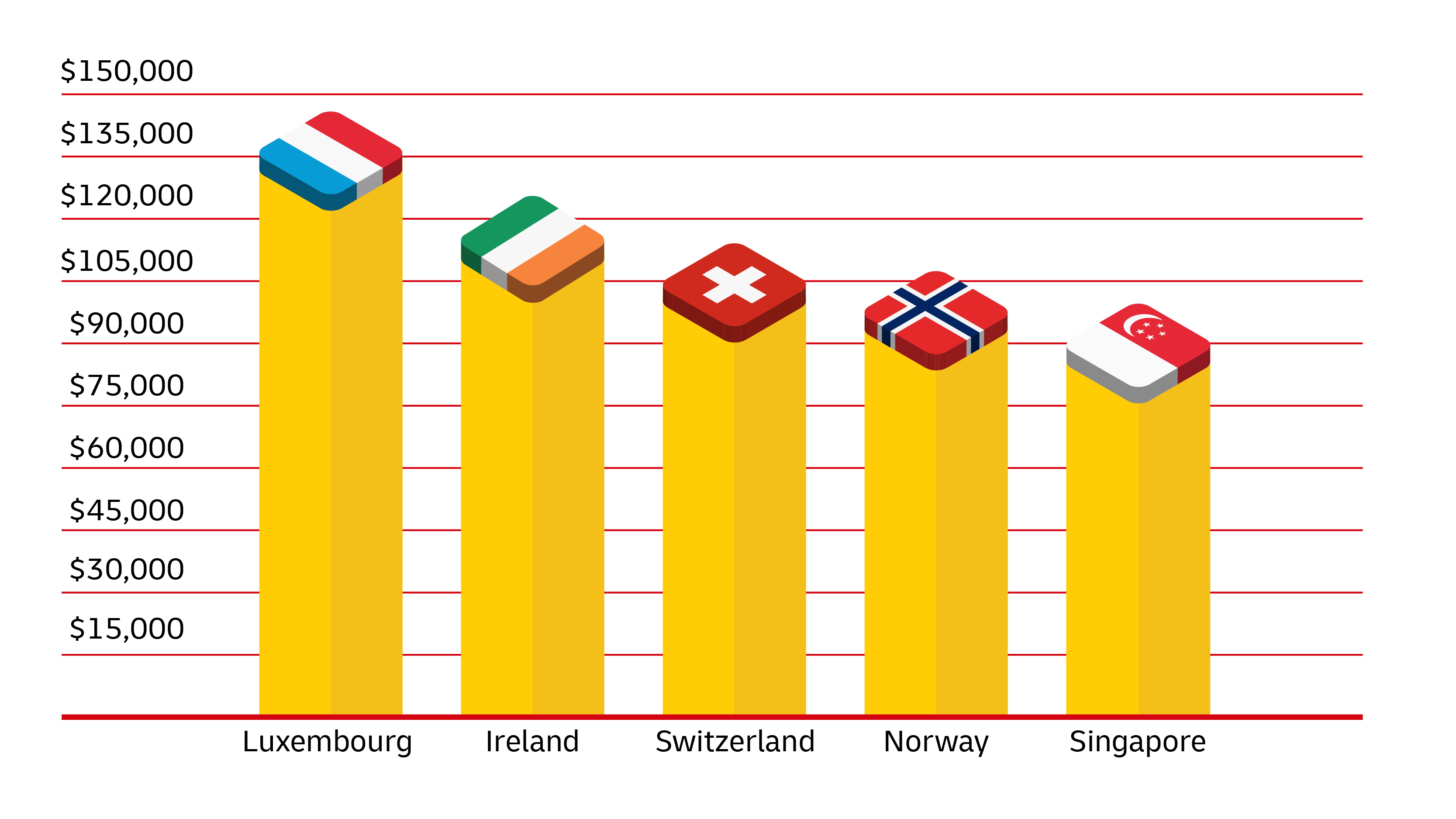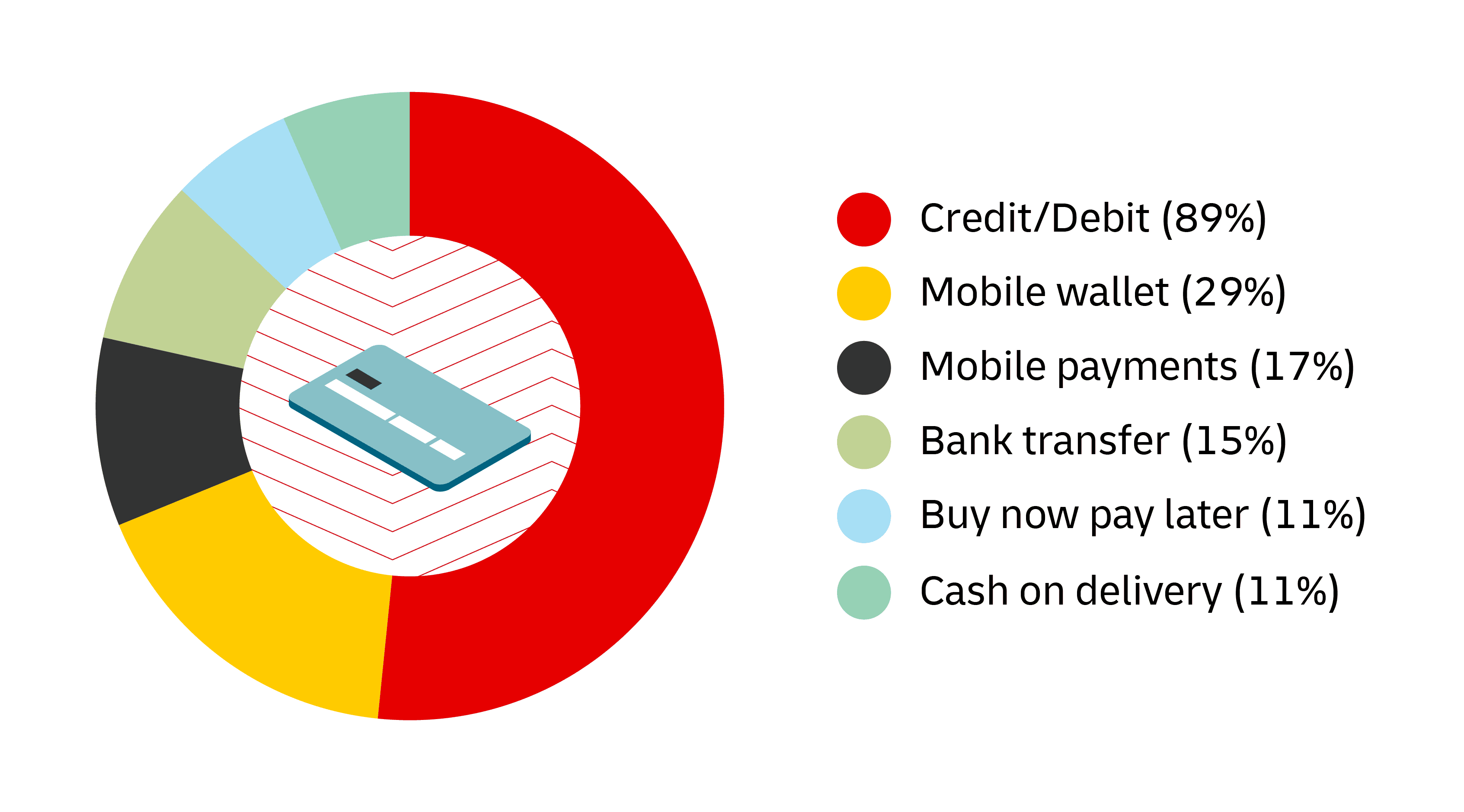Despite a population of just 6.04 million(1), Singapore’s economy packs a punch. Its low taxes, excellent business infrastructure, strong services and banking sectors, and almost entirely urban population have propelled it to become a global trade hub.
Furthermore, with one of the most liberal trading regimes in the world(2) with an extensive network of 27 Free Trade Agreements(3), businesses stand to benefit from tapping into the Singaporean market. At the same time, it’s crucial to understand its import and export regulations to ensure compliance for a smooth trading process.
Let’s take a look at what you need to know.
Singapore's trade and e-commerce landscape

4% GDP growth in 2024
Singapore’s gross domestic product grew by 4% in 2024, marking an increase from the 1.1% growth in the previous year(4).

5th by GDP per capita(5)
Gross domestic product per capita – a measure of a country’s wealth (does not indicate average earnings). In US dollars.

95.8% internet penetration(6)
As an economically advanced country, it’s no surprise that Singapore has a high internet adoption rate.

4.9 million users in the e-Commerce market by 2029(7).
More and more Singaporeans are expected to adopt online shopping as part of their consumer habits.

9.29% e-commerce growth(7)
Singapore’s e-commerce revenue is expected to show an annual growth rate (CAGR 2025-2029) of 9.29%.

63.7% e-commerce usage and growing
Singapore has not reached e-commerce saturation. User penetration will be 63.7% in 2025 and is expected to hit 80.4% by 2029(7).

USD $1,530 revenue per user(7)
That’s Singapore’s expected average revenue per user (ARPU), making Singaporeans some of the highest-spending e-commerce consumers in the world.
How to export goods to Singapore
Exporting goods to Singapore requires careful adherence to specific procedures. Here's a breakdown of the key steps:
Register your business and activate a customs account: You'll need a Unique Entity Number (UEN) and to activate your customs account with Singapore Customs. This ensures you can legally conduct export activities to the country.
Check import duties, GST, and controlled goods: Singapore Customs applies Goods and Services Tax (GST) and duties on certain goods. Use your goods’ description or Harmonised System (HS) code to check if they are controlled, requiring permits or licenses.
Apply for Inter-Bank GIRO: You can hire a Declaring Agent to apply for Inter-Bank GIRO (IBG) to make payment of duties, taxes, fees, penalties and other charges to Singapore Customs directly.
Provide security for dutiable or restricted goods: If applicable, the security furnished should be in the form of a Banker’s Guarantee, Finance Company Guarantee or an Insurance Bond.
Apply for an import permit: Your Declaring Agent can obtain the permits on your behalf, or you can do it yourself by registering as a Declaring Agent and applying for a TradeNet user ID.
Prepare documents for cargo clearance: Depending on the type of cargo, you will need the documents needed for customs clearance, such as the commercial invoice, packing list and Air Waybill, on top of the customs permit.
Clear customs and receive your goods: The final step, involving inspection and release of your shipment. Remember to retain all the relevant supporting documents for a period of five years from the date of the permit application approval.
How to import goods from Singapore
Goods and Service Tax (GST) and duty are not levied on goods leaving Singapore. However, if you’re importing goods from Singapore, you’ll still need to declare the goods to Singapore Customs and obtain the relevant export permits, especially for the following goods:
Locally manufactured goods or local GST-paid goods
Goods from the Free Trade Zone (FTZ)
Dutiable goods from a licensed warehouse
Non-dutiable goods from a zero-GST warehouse and goods under the Major Exporter Scheme
Goods to be re-exported under the Temporary Import Scheme
Goods to be exported temporarily before being re-imported
Similar to above, you’ll need to follow these steps:
Register your business and activate a customs account
Check if your goods are controlled
Obtain an export permit
Prepare documents for cargo clearance
Retain trade documents for a period of five years
National language: English
The four official languages are English, Malay, Mandarin, and Tamil, but English is the most widely used.
Singapore’s most popular online marketplaces(8)
Shopee
15 million visits
Lazada
7.2 million visits
Amazon
4.9 million visits
Qoo10
2.9 million visits
Castlery
1.4 million visits
Love, Bonito
https://www.lovebonito.com/intl
747,400 visits
Zalora
671,400 visits
Courts Singapore
647,800 visits
EZBuy
598,100 visits
eBay
316,700 visits
Most popular online product categories
Most popular e-commerce product categories in Singapore(9)
Preferred payment methods for online purchases
While credit and debit cards are a popular online payment method in Singapore, digital wallets are expected to become the top option by 2026(10). With that in mind, consider incorporating online payment services to boost your conversion rates when exporting to Singapore.
Singapore’s biggest shopping events and destination
Aside from online shopping, shoppers in Singapore also flock to Orchard Road, the city’s main shopping district. Given the country’s small size, brick and mortar retail is relatively accessible compared to other larger nations.
Consumers look forward to the following sales events throughout the year:
Great Singapore Sale: Also known as 6.6 and 7.7, this is the biggest sales event in the Singaporean retail calendar.
Black Friday and Cyber Monday: Consumers expect big discounts during these sales events at the end of November and early December, such as Black Friday free shipping.
Cinderella shoppers: Shopee’s new event for those who prefer to shop between midnight and 2am, with discounts available between these hours.
- 11.11 Sale Singapore (Singles’ Day): Annual event held on November 11th, offering discounts on a wide range of products.
Simplify your import and export process from Ireland to Singapore with DHL
DHL Express’s extensive global network and deep expertise in international shipping makes them a reliable partner for businesses and individuals alike.
Looking to export to Singapore?
DHL Express offers a complete international service for quick and reliable shipping.
Find out more

























